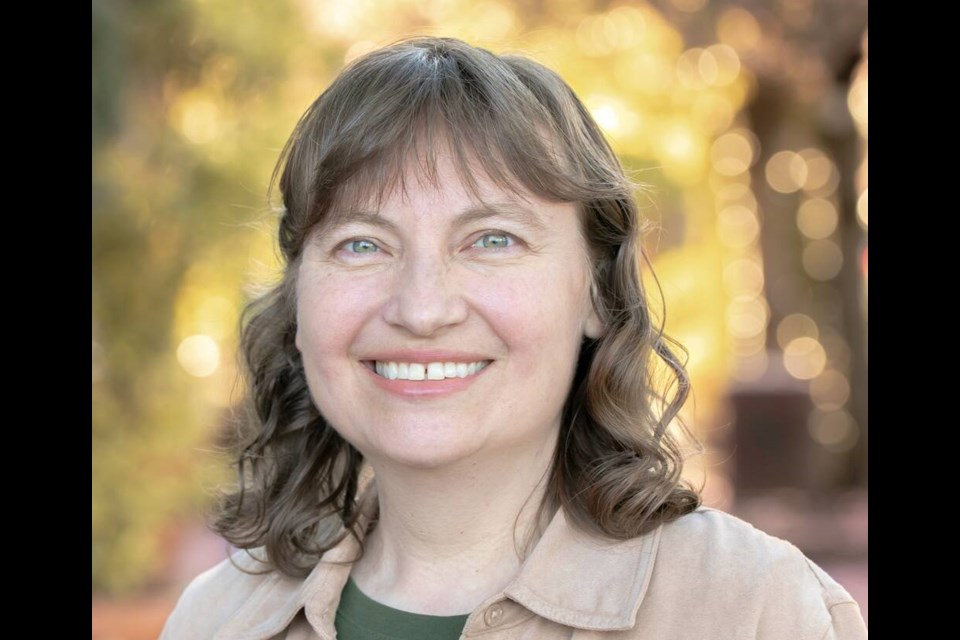Mary Wagner
instagram.com/mary4langford.ca
Are you associated with or running as part of a slate? If so, which one?
Langford Now Elector Organization
Do you live in the municipality where you are running, and if so, for how long? If not, what is your connection to that community?
Yes, I was born and raised here in Langford (age 0 to 15), and I moved back to raise my family here (from 2007 to 2022) for a total of 30 years.
What is your occupation, and for how long?
I am trained as a biochemist and cell biologist (PhD in Biochemistry); was employed as a researcher for 3 years; and for the past 15 years, I have been a university lecturer part-time for the Department of Biology at the University of Victoria.
Tell us about your previous elected and/or community experience.
I am an active member in a variety of community groups including the Juan de Fuca Performing Arts Centre Society, Victoria Curling Club, 100 Women Who Care Westshore and the Westshore Chamber of Commerce. I care deeply about the environment, and was active with my two daughters in Nature Kids Club for many years. Currently, I am a member of Friends of Millstream Watershed, the Esquimalt Lagoon Stewardship Initiative, and the South Island Climate Action Network. For over a year, I have been consistently attending Langford city planning and council meetings.
Why are you running? What’s your motivation?
I am running for Langford council because I am passionate about my community. Langford is changing fast! With so much development here, I want to use my strong research and teaching skills, along with my people skills and friendly, collaborative nature to help support our booming population with improved infrastructure, services and green space. Council should work together with the public to find balance and quality of life for current and future residents. My priorities on council include sustainable growth, the environment and greenspace, making sure decisions are transparent and based on community engagement, and building safe and healthy communities.
What are your top three issues?
My top 3 concerns are sustainable development, meaningful public consultation and healthy, safe communities. The way we develop in Langford needs to be paced with improvements to infrastructure, services and greenspace. Building practices need to ensure climate resiliency and a variety of housing options to ensure renters and homeowners can find their place in our community. People of all ages, abilities and incomes should be able to live, work and play in a safe, healthy way. This requires accessible and affordable recreation, arts and cultural opportunities. The community must be included in the conversation of how Langford changes and grows.
What’s your vision for your community in 25 years?
The Langford of tomorrow is a thriving community based on sustainable development with public engagement and transparent government. The city centre is climate resilient, with homes and businesses at a moderate height, maintaining a neighbourhood feel. Walking, cycling, and public transit is emphasized; accessible greenspace and public gathering spaces foster community relationships and well-being. Outside the city centre, neighbourhood hubs of local businesses, services and amenities give people options close to home. Future Langford has met climate action targets, worked to improve food security, and completed the calls to action from the Truth and Reconciliation Commission. The city has preserved natural spaces, added community gardens, safe routes to school, and affordable, publicly run recreation and arts and culture centres. Langford feels like a balanced community.
What’s one “big idea” you have for your community?
Langford needs an Official Community Plan (OCP) review, with meaningful public input and a focus on building community. In Langford, development is being pushed through too quickly through constant amendments to the Official Community Plan (OCP) to allow higher density, without assessing whether it’s the type of housing we need. This has had a high cost on the environment and left our residents with inadequate infrastructure, services and greenspace. Once we have an updated OCP, we need to follow that plan and make sure infrastructure keeps pace. The OCP should be reviewed every 5 years using a thorough, thoughtful, public process to guide how our community grows.



